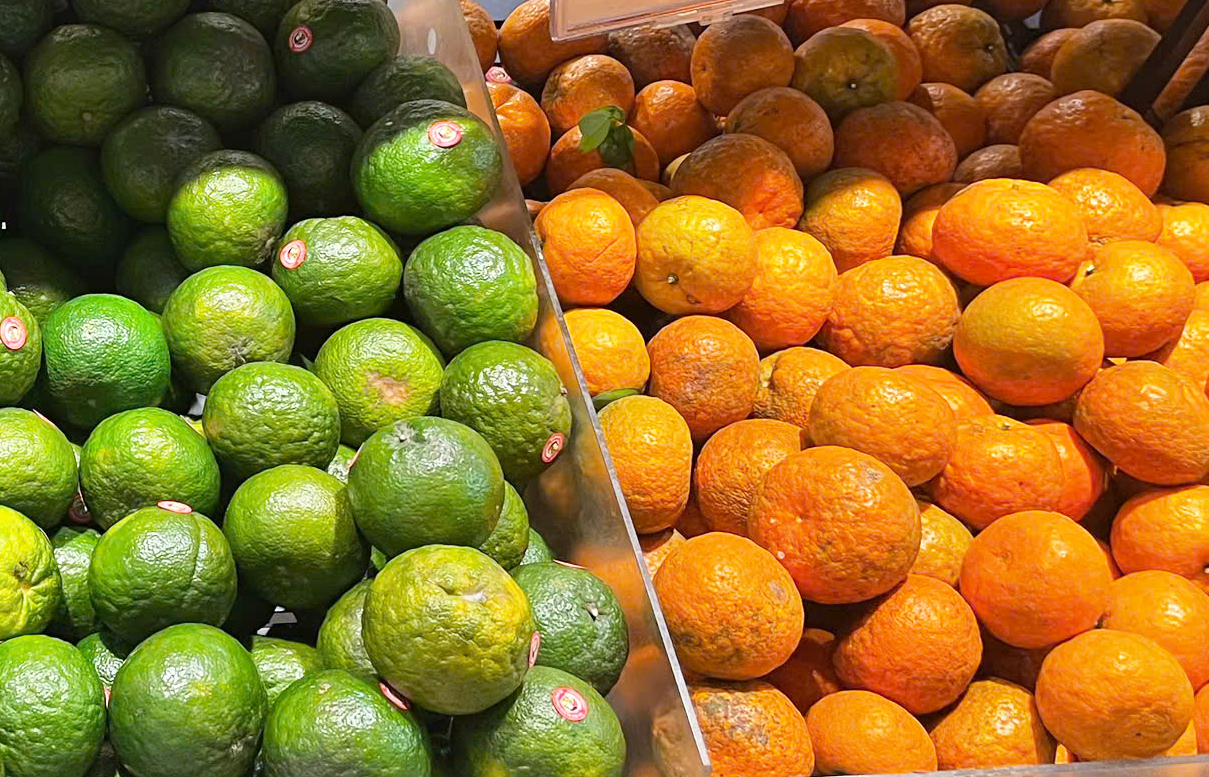Dr. Nguyen Thi Phuong, from the Department of Nutrition at Tam Anh General Hospital in Hanoi, says that having fruit for dessert after a meal is a good habit instead of eating cakes or ice cream, which are high in sugar and fat. Fruit satisfies the craving for natural sweetness while providing fiber, vitamins, and beneficial minerals. Enjoying fruit after a meal helps avoid consuming additional unhealthy foods and ensures a sufficient daily intake of fruit.
Fruit for dessert supports digestion and intestinal motility. After a meal rich in protein and fat, adding fruit supplements the amount of crude fiber, promoting easier movement of food in the intestines and preventing constipation. A serving of fruit for dessert can compensate for the lack of fiber in people who eat few vegetables.
Papaya, pineapple, green apples, and kiwi contain protein-degrading enzymes. Eating them after a meal helps digest meat and fish more easily. This habit can enhance the absorption of nutrients from other foods. For example, fruits rich in vitamin C (oranges, guava, kiwi, and strawberries) aid in the absorption of iron from food. Vitamin C helps convert iron from a non-absorbable form to an easily absorbable form while reducing the inhibitory effect of plant phytates on iron absorption. According to Dr. Phuong, eating an orange for dessert after a meal increases the amount of iron absorbed from green vegetables, beans, and meat in the main meal.
After meals rich in saturated fat and sugar, the body tends to increase oxidative stress, stimulating inflammatory responses. Citrus fruits or those rich in flavonoids can neutralize and reduce the adverse effects of fatty meals. Dark purple fruits (blueberries, black grapes, and black plums) are rich in antioxidants, contributing to reducing post-meal inflammation. People with diabetes should eat fruit after meals as it causes less of a spike in blood sugar.
 |
Having fruit for dessert after a meal is a good alternative to cakes and ice cream, which are high in sugar and fat. Photo: Ly Nguyen |
Having fruit for dessert after a meal is a good alternative to cakes and ice cream, which are high in sugar and fat. Photo: Ly Nguyen
Dr. Phuong notes that immediately after a main meal, the stomach is already full of food, so adding a large amount of fruit can cause overeating, leading to indigestion, bloating, distension, and belching. This condition is more severe in people with poor digestive systems or irritable bowel syndrome (IBS). These individuals should avoid eating fruit for dessert immediately after a main meal; instead, they should wait about 1-2 hours.
Some people with gastroparesis, delayed gastric emptying, or after gastric surgery should limit their intake of fiber at one time. Adding fiber from fruit causes food to stay longer in the already weakened stomach, causing prolonged indigestion. People who are losing weight should limit eating mango, jackfruit, and durian after the main meal, as these can lead to excess calorie intake. Each person should calculate the total calories from fruit consumed daily, eating 1-2 servings, equivalent to about 100-150 g, for dessert.
Ly Nguyen
| Readers can submit questions about digestive diseases here for doctors to answer. |












